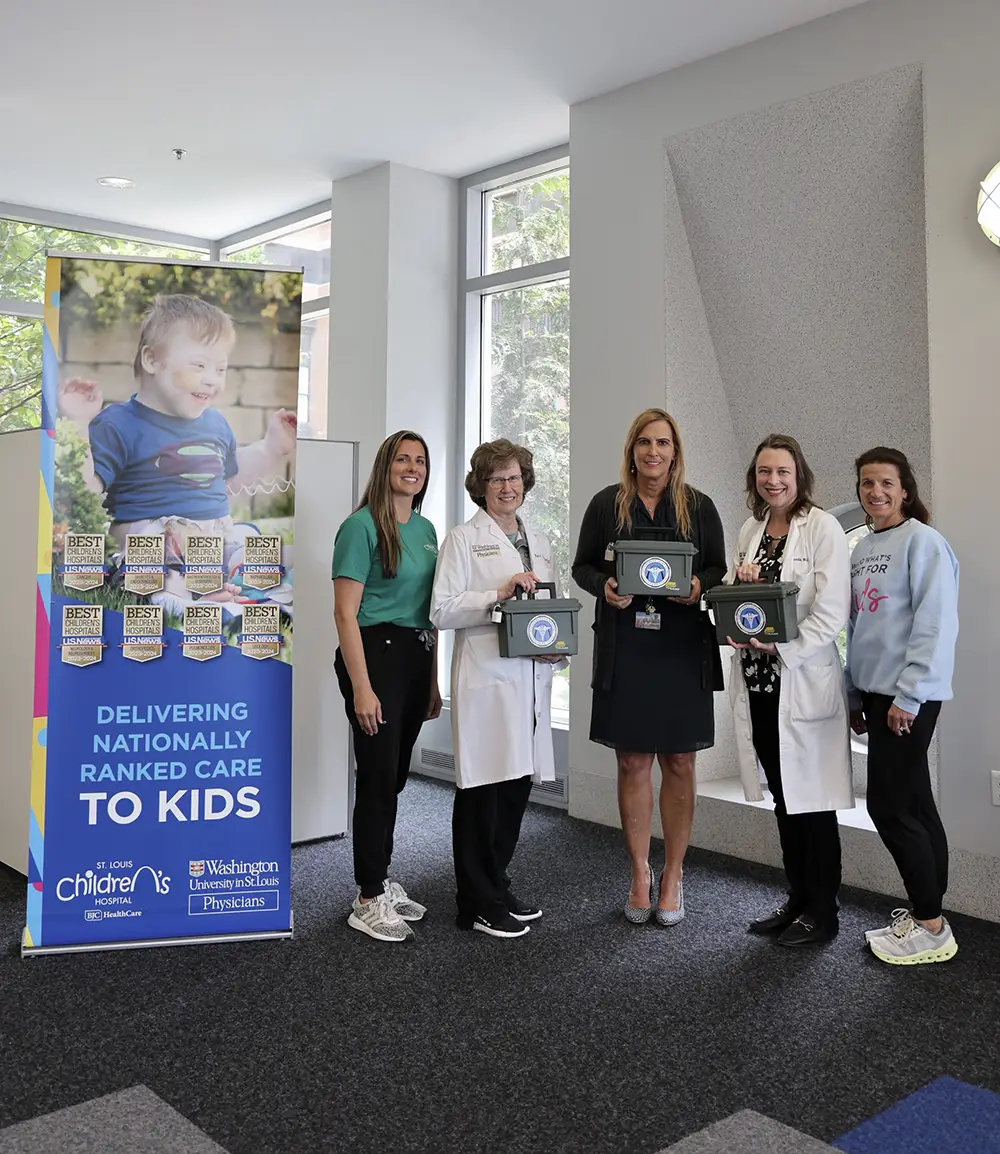St. Louis Children’s Hospital and City of St. Louis Health Department take new step to reduce drug overdoses

ST. LOUIS (September 10, 2024) – St. Louis Children’s Hospital, part of the BJC Health System, and the City of St. Louis Health Department are working to help minimize the risks of poisoning deaths in the St. Louis area. For one year, as part of a pilot program, 1,000 lockboxes will be offered free of charge, thanks to a grant provided by the Health Department, to families who arrive at the emergency department with a child who has accidentally, or intentionally, ingested medications not meant for them. These boxes will also be provided to families experiencing behavioral health crisis – like suicidal ideation – to prevent self-harm by accessing medications.
The lockboxes are 9.5 inches deep x 6 inches high x 5 inches wide and can hold several containers of medication. The lockbox is locked with a key and padlock – limiting access to only those with the key.
The lockboxes are large enough to also hold a small handgun. The St. Louis Children’s Hospital Emergency Department started a similar program in 2020 – offering free gun locks, no questions asked to families. Since that program launched, it has grown to include over 20 locations across the BJC system. The hope is this pilot program, aimed at curbing child overdoses, will find similar success.
According to data from the Missouri Child Fatality Review Program, poisoning deaths in children have increased over the past three years, from an average of 11 poisoning deaths per year to 62 deaths in 2022. Although car accidents and gun-related injuries still kill more children each year, drug overdoses and poisonings increased by more than 500 percent in 2022.
“A locked box can be crucial to protecting older children, who may impulsively take medications as a form of self-harm or by accident,” said Dr. Lindsay Clukies, a Washington University emergency medicine physician at St. Louis Children’s Hospital. “It is also important to educate children, teens, and adults on how to prevent accidental exposure, signs of overdose, and what to do in case of an emergency should someone come into contact with misused drugs outside your house.”
In addition to calling 911 in an accidental or intentional ingestion situation, another proactive safety measure is to keep NARCAN, a medication that works quickly to reverse opioid overdose, at home. This can be used for children and adults and is in the form of a nasal spray.
"A study from the American Academy of Pediatrics just last year found that child deaths from ingesting prescription medication have risen more than 130 percent in a decade, and quite frankly, that is unacceptable," said Dr. Mati Hlatshwayo Davis, Director of Health for the City of St. Louis. "We are pleased to work with St. Louis Children's Hospital to provide another way for parents to keep their children safe while preventing unnecessary injuries and deaths."
Additional information on recognizing the signs and symptoms of an overdose can be found here.
About BJC HealthCare
St. Louis Children’s Hospital is part of BJC HealthCare, which serves the East Region of BJC Health System, one of the largest nonprofit health care organizations in the United States. Through its 14 hospitals and multiple health service organizations, BJC facilities deliver extraordinary care to urban, suburban and rural communities in greater St. Louis, southern Illinois and southeast Missouri, as well as to people from across the country and around the world at its academic hospitals Barnes-Jewish and St. Louis Children’s Hospitals. BJC’s nationally-recognized academic hospitals are affiliated with Washington University School of Medicine. Services provided include inpatient and outpatient care, primary care, community health and wellness, workplace health, home health, community mental health, rehabilitation, long-term care and hospice. To learn more, visit BJC.org, Facebook, Twitter, Instagram and LinkedIn. As one of the largest employers in Missouri, BJC Health System comprises 24 hospitals and hundreds of clinics and service organizations and operates in two distinct regions, serving patients in its west region through Saint Luke’s Health System.
- Resource